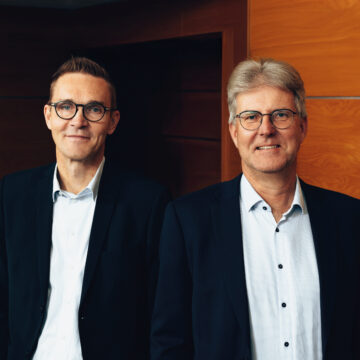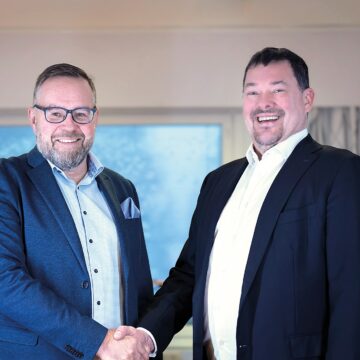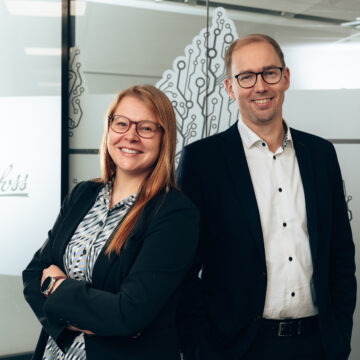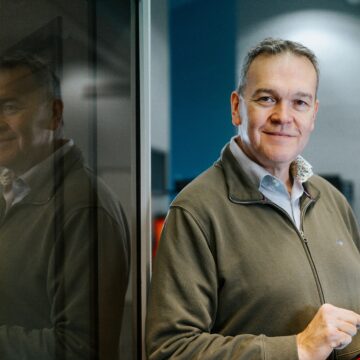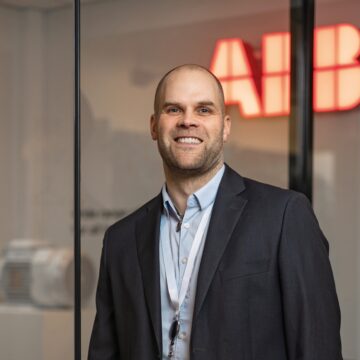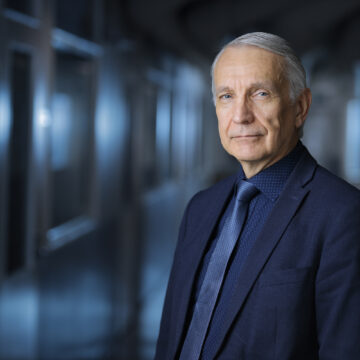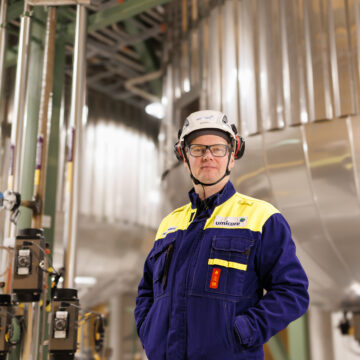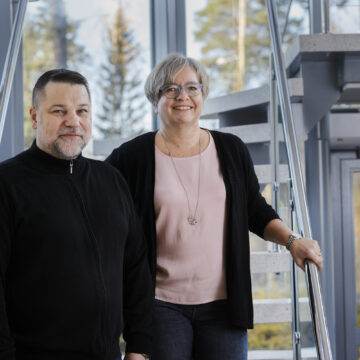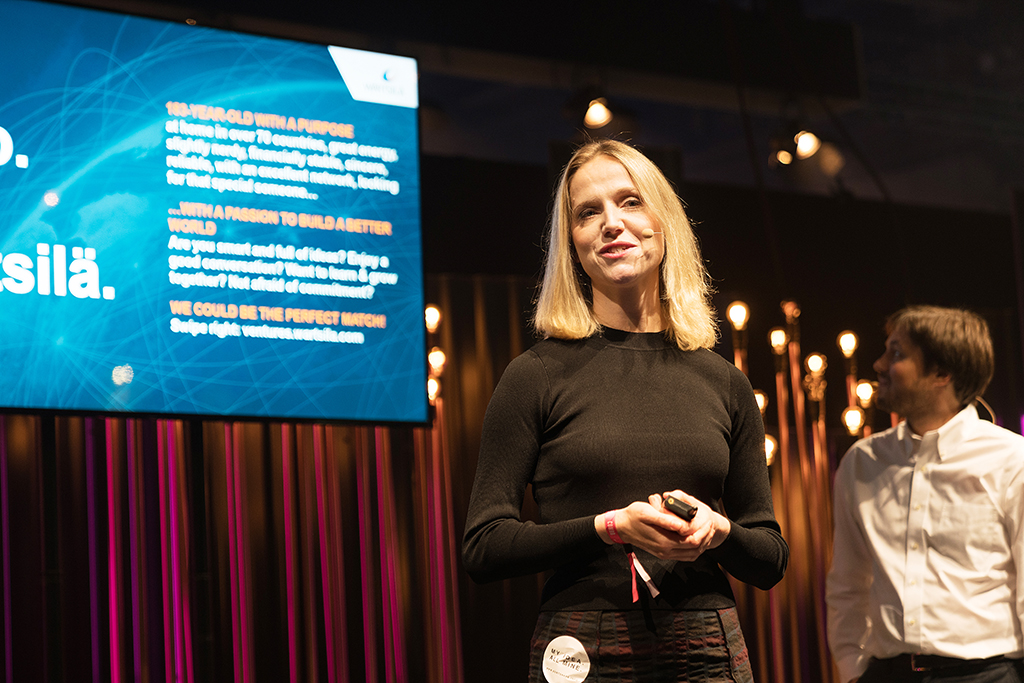
Changing the clock speed
Chief Digital Officer and Executive Vice President at Wärtsilä, Marco Ryan, prefers to talk about digital transformation rather than digitalisation. Although there is nothing wrong with the word ‘digitalisation’, he says, the reason for making a distinction between the two terms is to highlight the significance of digital solutions for creating new products, services and operating procedures.
“It’s not just about converting analogue to digital. Genuine utilisation of digitalisation creates new ways of doing business and serving customers better. For Wärtsilä, Digital transformation is a tremendous opportunity to develop its entire business,” Ryan says.
Wärtsilä has a long history as a manufacturer of engines for ships and power plants. Today, the company offers advanced technologies and complete lifecycle solutions for the marine and energy markets all over the world. Maintenance and the associated lifecycle services have become an increasingly important part of the company’s operations and, based on its turnover, it is safe to say that today Wärtsilä is the largest service exporter in Finland. Wärtsilä has capitalised on digital solutions for years and has made advances in it in several stages.
“Whereas before we brought added value to our customers by optimising their engine use, now we can also operate the engines for them,” says Ryan. The Digital transformation mindset and the solutions enabled by it have not only played a crucial role at Wärtsilä in developing new products and services, but also in the growth of the company’s entire Services business.
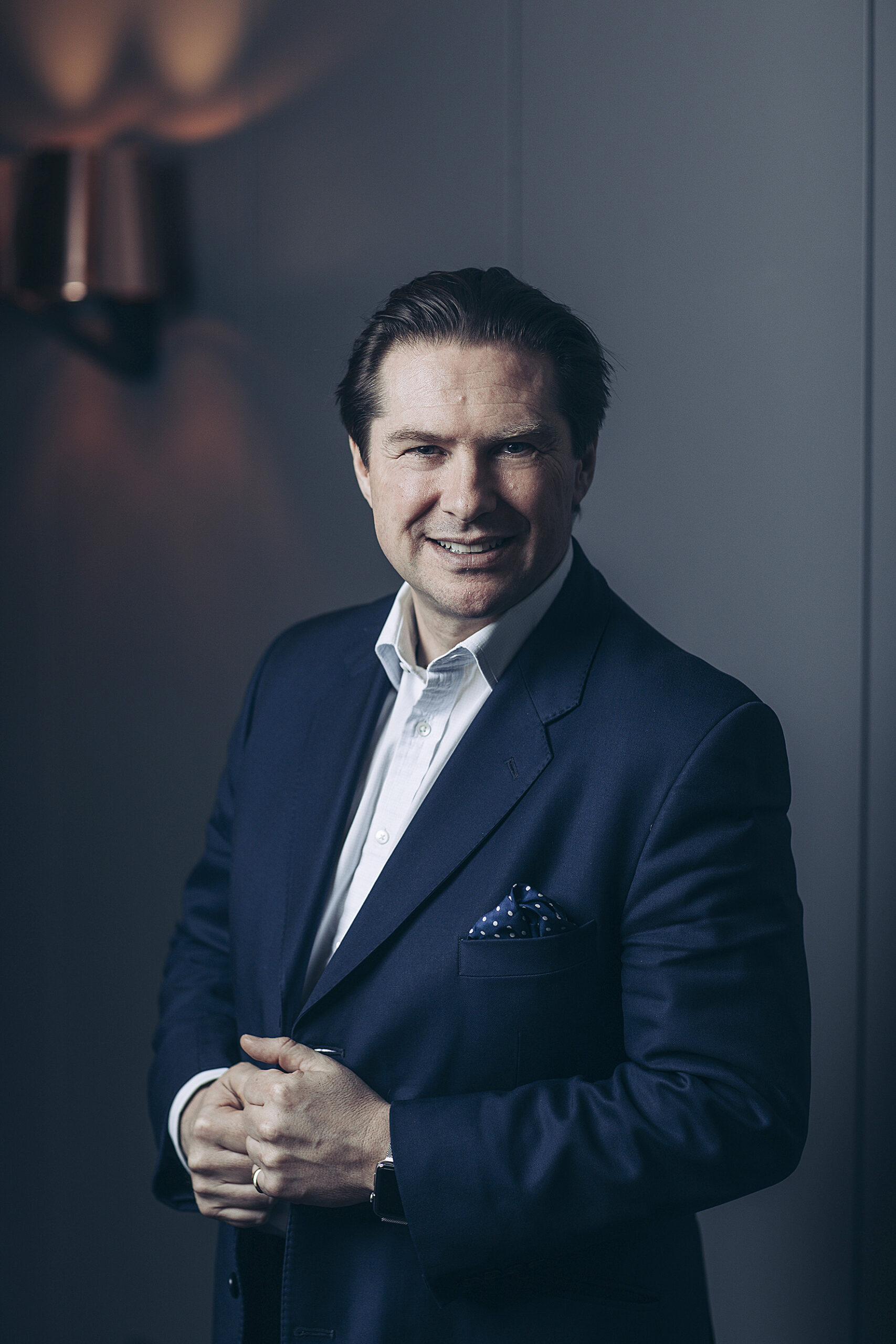
we want to help our
customer to fish, not
just feed them food,”
Marco Ryan says.
The target Wärtsilä has set for itself is to continue to be a forerunner in creating new models and solutions for business operations, whether this involves technologies, processes or human interaction. At best, Digital transformation means a shift in the way a company does business as a whole, and this requires a readiness for change and a new way of thinking.
“Our challenge is to redefine the operating procedures between us and our customers and suppliers which create the most added value,” Ryan says. As part of this process of change, Wärtsilä has opened its first Digital Acceleration Centres (DAC) in Helsinki and Singapore. Their function is to further accelerate the speed of innovation. These centres focus on developing solutions together with the customers, with the aim of helping them to find ways of becoming forerunners in their own industries too.
“With digital, we must always deliver value to our customers, yet do so collaboratively. Metaphorically we want to help them to fish, not just feed them food,” Marco Ryan says. He explains that the activities of the Digital Acceleration Centres are based on the startup mindset, which means that it is possible to test new ideas and solutions and make them into prototypes very quickly. Ryan mentions that right now many fascinating new solutions utilise artificial intelligence and virtual reality.
In addition to the two DACs already in operation, Wärtsilä intends to launch two more – one in Central Europe and the other in North America. Also, a brand new Information Management Acceleration Centre (IMAC), which makes use of the same startup mindset, has been opened in Vaasa, Finland. IMAC is part of Wärtsilä’s new Digital Organisation and its purpose is to accelerate strategic business, support function initiatives and extract maximum value out of Wärtsilä’s existing investments in core IT platforms.
”Digital Transformation is about reinventing our company into Wärtsilä as a service – a digitally enabled, insight-led, customer-obsessed leader in the marine and energy sectors”, says Marco Ryan.
The work carried out at IMAC is project-specific and its project teams, typically about 10–30 people, are made up of the Wärtsilä experts from across the business who will best serve the needs of the project.


